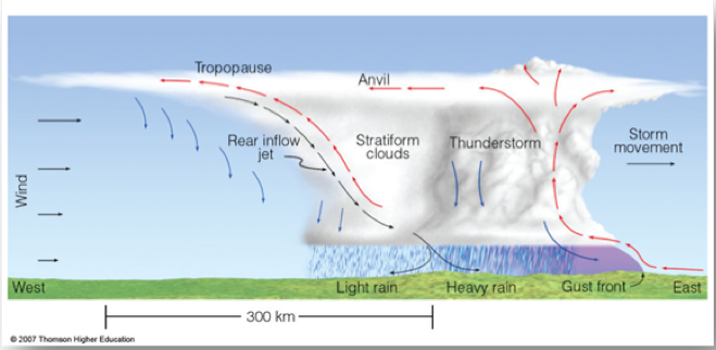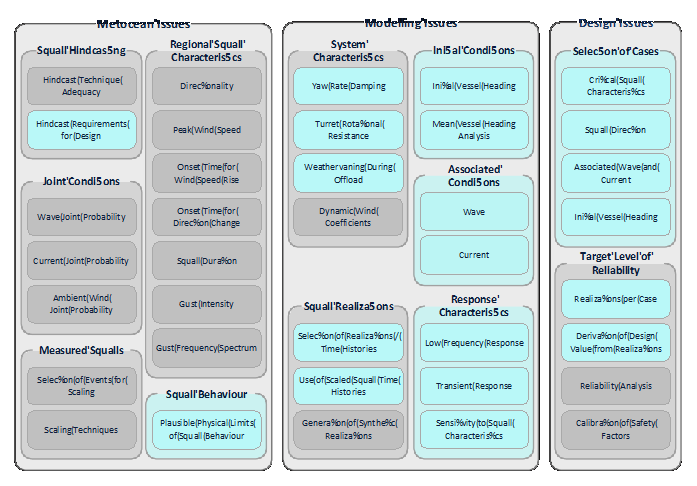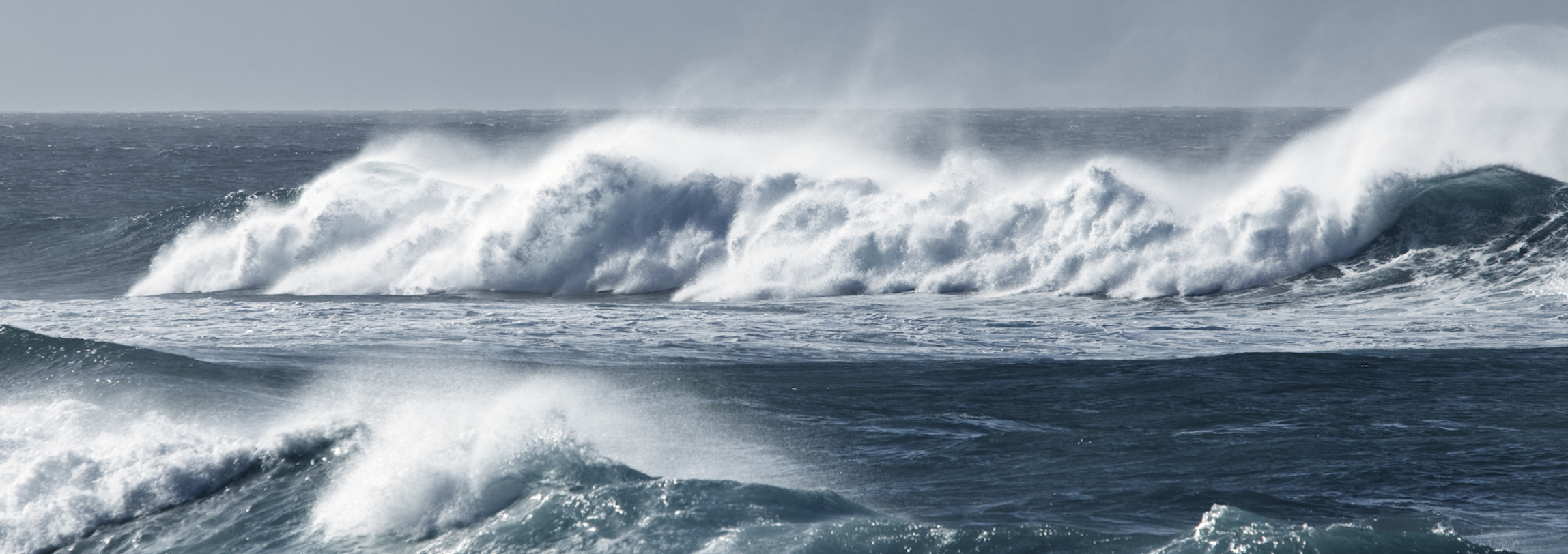Squalls are a major issue for designers and operators of floating units in equatorial offshore regions such as West Africa, Indonesia and the South China Sea. Even outside these equatorial offshore regions, squalls can have a significant impact on the safety and integrity of FPSO and FSO offtake operations.
Squalls are a major issue for designers and operators of floating units in equatorial offshore regions such as West Africa, Indonesia and the South China Sea. Even outside these equatorial offshore regions, squalls can have a significant impact on the safety and integrity of FPSO and FSO offtake operations.

What is a Squall?
- High energy, transient wind event, typically accompanied by large change in wind direction
- Abrupt and large increase of wind speed, often accompanied by showers or thunderstorms.
- Transient event with duration less than the sustained duration (stationary 3 hours event conventional for offshore design)
Current Practice and Research
There are areas governed by special met-ocean phenomena such as squalls that are not well represented by parameters with typical return period statistics. - Legerstee et. al, 2006
No codified and consistent design approach exists for transient events such as squalls. There is no comprehensive characterization of typical wind speed and direction behavior of squall events, and their effects on the dynamic response of floating structures. Hence, current mooring design practice for squall tends to involve simulating a large number of potential squall scenarios. This methodology:
- Is computationally intensive
- May not adequately capture the squall features and system specific response
- May result in overly conservative results, with a commensurate knock-on cost impact on the mooring/riser system of floating units.
Current design practice for turret mooring systems and analysis of tandem offload systems under squall conditions varies widely across industry. Further, the fundamental drivers of the response of such systems under squall conditions is not well understood, particularly compared to spread moored systems. As a result of the lack of industry consistency in design methodologies for turret mooring systems and tandem offload systems under squall conditions, application of reliability analysis of techniques has a real potential to generate inconsistent results, and would be premature until a greater level of industry consensus is reached.
Objectives
The Squall Mooring Joint Industry Project (Squall Mooring JIP) is proposed to address existing design shortcomings. The Squall Mooring JIP will primarily focus on:
- Identifying the fundamental drivers of squall response for turret moored platforms and tandem offload systems.
- Developing an industry consensus approach to the analysis of turret mooring systems and tandem offload systems in squall conditions.
- Providing guidance on the design basis data required for both early design and detailed design stage analyses
Participants
It is anticipated that the findings of the JIP will be embodied into Recommended Practice from Class Societies. ABS is a JIP participant as well as SOFEC. This JIP is especially relevant to:
- Offshore oil and gas companies
- Floating production and storage facility operators
- Floating facility designers
- Classification societies
- Safety regulatory authorities
Prioritized Issues

Work Breakdown Structure
- Squalls and System Definition
- Squall Data Classification
- Empirical Review of Squall Physical Limiting Characteristics
- Example Mooring System Definition
- Review of Existing Squall Analysis Practices
- Parametric Analysis Case Matrix
- Response Sensitivity Investigation
- Parametric Sensitivity
- Analysis of Response Characteristics
- Evaluation of Key Parameter Sensitivity
- Guidance on Squall Characteristics Required from Metocean Studies
- Squall Mooring Design Guidance
- Design Case Selection
- Design Practice Guidance
- Class Society Independent Review
- Recommended Practice
For further information, contact:
Mr Tim Lee or Dr Andrew Potts
P: +61 3 9542 3700

